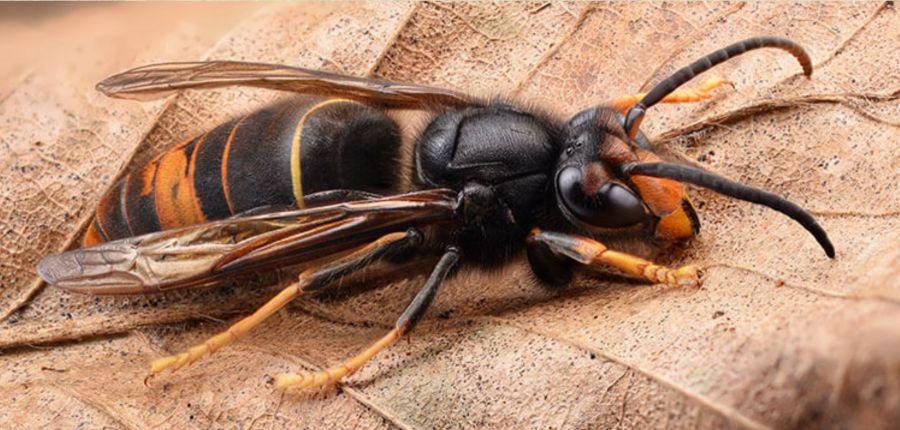Asian hornet alert
Posted By: rocket veg Category: Pests and DiseasesIt seems that hardly a week goes past without more news about the parlous state of pollinating insects in the UK – bees in particular. Loss of habitats and the widescale use of pesticides have had a massively detrimental impact on bees with some species now under threat and numbers generally in serious decline.
To add to the problems already facing them, our industrious, gentle honeybees now face another threat in the form of a seriously nasty pest which has been making its way steadily across Europe and reached our shores in 2016 – the Asian hornet (Vespa velutina).
Why is the Asian hornet a threat to honeybees?
This invasive species targets honeybees in particular, feeding on their thorax which it uses as protein to feed its young. In early spring, the Asian hornet queens seek out a suitable location to build their nest, often in the foliage of trees, and once the queen has somewhere to start laying her eggs, a large colony of hungry hornets soon develops. The adult hornets then search for the nearest honeybee colony and simply fly back and forth in front of the hive, catching worker bees as they enter or leave the hive with their loads of pollen and nectar. This distinctive behaviour is sometimes described as ‘hawking’, being similar to the hunting tactics used by some birds of prey.
Since its first sighting in the UK, all Asian hornet nests have been located and destroyed, but the concern is that if the Asian hornet manages to establish permanent colonies here, it will be impossible to halt the spread. The experience of countries, such as France, where the Asian hornet is now widespread, is sobering: complete colonies of honeybees have been wiped out with a severe impact on honey production – and pollination.
How to identify an Asian hornet
Don’t confuse the Asian hornet with our native European hornet which is similar to a common wasp, having a yellow and black striped abdomen. The Asian hornet has a dark brown, almost black body with a distinctive orange/yellow band towards the tail end and yellow legs – hence its nickname, ‘the yellow-legged hornet’, an aid to identifying it.
What to do if you spot an Asian hornet
Due to its non-native status and the serious threat that it poses to honeybees in particular, sightings of Asian hornets should be reported via the following link: http://www.brc.ac.uk/risc/alert.php?species=asian_hornet
For more information, download the Asian Hornet Watch app which also has the facility to report sightings.







